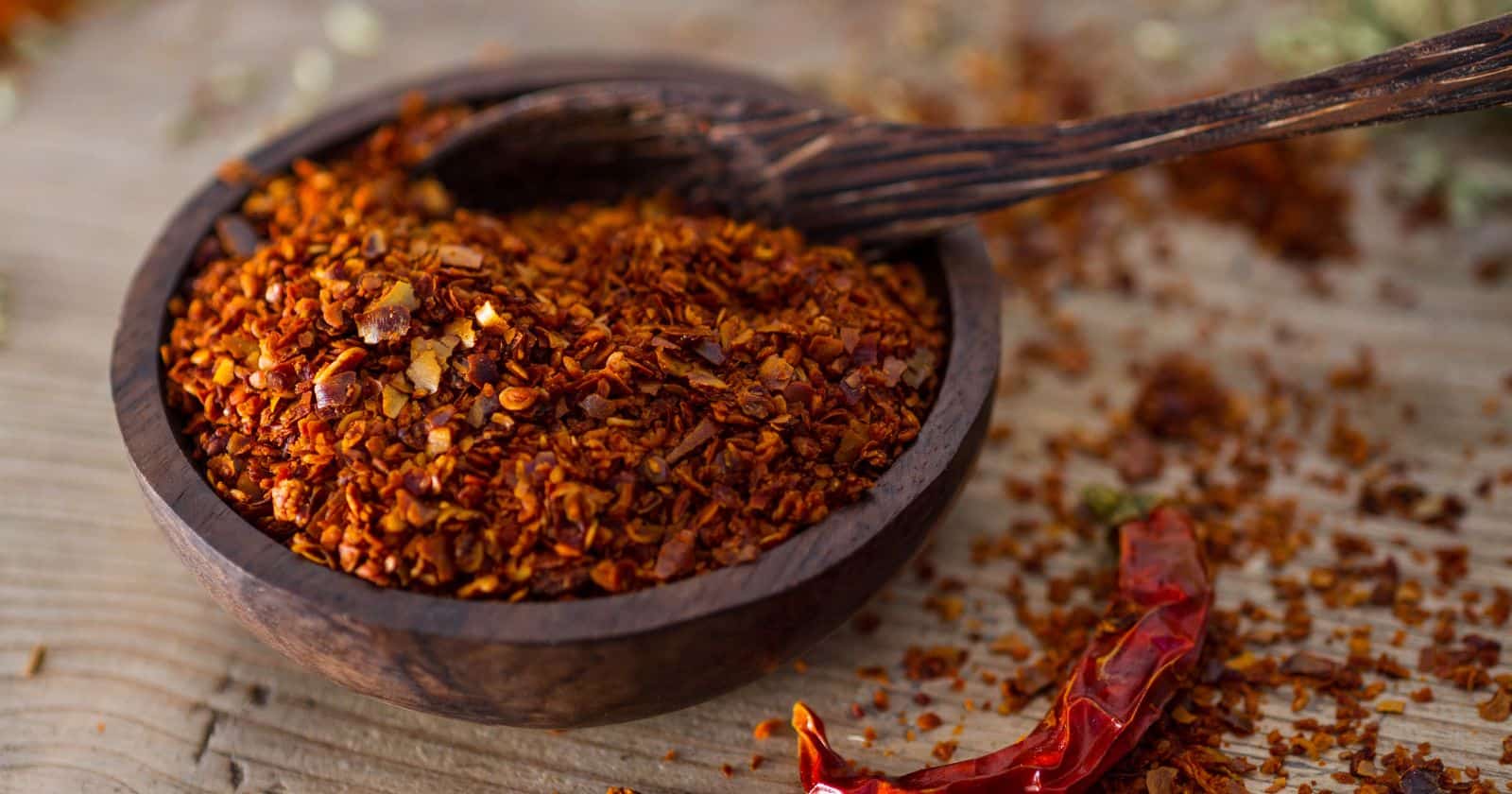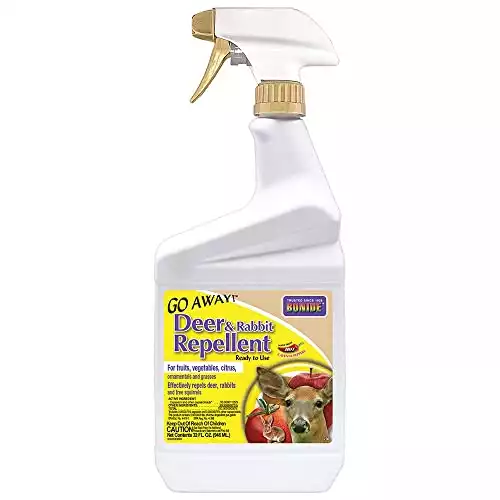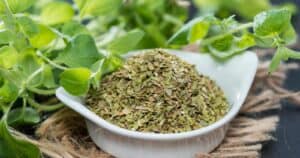Are rabbits, deer, and other critters eating up your garden? Want to stop them in a safe, natural way? Try using red pepper flakes!
The spicy chemical called capsaicin in red pepper flakes irritates animals. It makes mammals like squirrels and rabbits feel a burn when they touch or eat it. This teaches them to stay far away from your garden!
To use red pepper flakes for natural pest control:
- Make homemade spicy sprays by simmering red pepper flakes and garlic in water.
- Spray the mix directly onto plant leaves and fruits that pests eat.
- Focus on areas where animals enter your garden or feed.
- Reapply after rain washes the spray away.
- Sprinkle red pepper flake powder around gardens.
- Combine with other natural methods like fences and netting for best protection.
Red pepper flakes are affordable, natural, and safe for you, pets, and plants. Give your garden an eco-friendly spicy kick to stop pests without chemicals!
Understanding Destructive Garden Pests
Before diving into natural control methods, let’s look at some of the worst animal offenders when it comes to ravaging gardens:
Rabbits: Rabbits munch on almost anything green. They can destroy young vegetable seedlings overnight and nibble flowers down to the stem.
Deer: Hungry deer feed on flowers, fruits, vegetables, tree buds, and more. They also trample gardens with their hooves.
Squirrels: Squirrels dig up planted bulbs and seeds. They also gnaw on plants and trees, damaging branches and trunks.
Groundhogs: Groundhogs burrow under gardens, chewing up plant roots and disrupting soil. Their holes are a tripping hazard.
Birds: Birds peck and feed on ripening fruits and vegetables like berries, corn, and lettuce.
Identifying the culprits harming your garden is the first step to deterring them. Now let’s look at how red pepper flakes can help!
Benefits of Red Pepper Flakes for Natural Pest Control
Wondering if red pepper flakes are really effective for driving away garden pests? Consider these benefits:
No chemicals: Red pepper flakes are an all-natural, non-toxic solution safe for people, plants, and animals. There’s no need for harsh man-made pesticides.
Readily available: You can easily find red pepper flakes in the
Budget-friendly: A large bag of red pepper flakes costs just a few dollars. A little goes a long way when making homemade repellent sprays and dusts.
Safe for wildlife: Capsaicin irritates mammals but causes no long-term harm. It’s an ethical, humane solution.
Not harmful to plants: Direct contact with plants won’t damage or “burn” them. Just avoid heavy application on blooms and edible parts.
Natural protection: Why use toxic chemicals when you can harness the power of Mother Nature?
Let’s look closer at how the natural compound capsaicin keeps pests away.
How Capsaicin in Red Pepper Flakes Repels Animals
Capsaicin is what makes hot peppers taste spicy. It activates pain receptors and causes intense irritation. Most mammals instinctively avoid this unpleasant sensation.
When animals ingest or contact capsaicin, it:
- Burns and irritates skin and mucus membranes
- Causes eyes and nose to sting, swell, and water
- Leads to gastrointestinal upset like vomiting and diarrhea
- Stimulates a burning sensation when inhaled
While capsaicin won’t permanently harm pests, these uncomfortable effects teach them to steer clear of plants and areas protected with red pepper flakes. Constant exposure may lead to taste aversion over time.
However, some animals like birds can’t detect the
Ready-to-Use Spray, Hot Peppers Deter Animals from Lawn & Garden
Creating Homemade Hot Pepper Repellents
Want to whip up your own natural pest deterrent? Here are recipes to try:
Red Pepper Flake Spray
- 1-3 tablespoons red pepper flakes
- 2 cups water
- 1 teaspoon mild dish soap
Simmer the flakes in water for 10 minutes. Let cool and strain. Add soap and transfer to a spray bottle. Mist leaves, stems, and soil around plants.
Cayenne and Garlic Spray
- 3-5 chopped hot peppers or 1⁄4 cup cayenne powder
- 4 cloves crushed garlic
- 2 cups water
- 1 teaspoon mild dish soap
Simmer the peppers, garlic, and water for 20 minutes. Let cool, strain, and add soap. Use within a week.
Red Pepper Dust
- 1 cup red pepper flakes
- 1 cup flour
Process in a food processor into a fine powder. Lightly dust around gardens and individual plants. Reapply after rain.
Cayenne Pepper-Based Hot Sauce
- 1 part hot sauce
- 16 parts water
Dilute hot sauce with water. Use as a multipurpose repellent spray. Start with mild hot sauce and increase spiciness as needed.
These spicy solutions harness the power of capsaicin to irritate and repel garden pests but won’t damage your plants when used properly.
Effective Application Tips for Repellent Solutions
To get the best results from your homemade spicy repellents, follow these application tips:
- Focus on known pest entry points and feeding sites.
- Coat the undersides of plant leaves where insects hide.
- Spray vegetable plants and ripening fruits directly.
- Create a perimeter around gardens by spraying soil.
- Reapply after heavy rain or watering washes solution away.
- Use higher concentrations for severe infestations.
- Combine with physical barriers for maximum protection.
- Monitor for damage and reapply if pests return.
- Avoid excessive contact with blooms or edible parts of plants.
With smart targeted use, these irritating solutions drive away pests without harming your garden!
Will Red Pepper Flakes Deter All Pests?
While quite effective against many mammals, red pepper spray solutions do have limitations:
Tolerance varies: Some pests like rodents may become accustomed to capsaicin over time. Solutions may lose effectiveness.
Doesn’t work on all insects: Beneficial insects like bees are unaffected. Results vary for damaging bugs.
Rain washes away: Frequent reapplication after storms is needed to maintain protection.
Some animals don’t detect the
Other solutions needed for burrowers: Red pepper flakes only repel animals at the surface level.
For best results, use red pepper repellents alongside other organic methods like physical barriers and natural insecticides. A multifaceted approach maximizes the protection of your garden!
Combining Red Pepper Flakes With Other Natural Pest Control Methods
While quite effective against many mammals, red pepper spray solutions do have limitations:
Diatomaceous earth: The sharp edges of this powdered mineral damage soft-bodied insects like slugs upon contact. Sprinkle around gardens.
Neem oil: Extracted from the neem tree, this oil disrupts insects’ feeding, growth, and reproduction when sprayed on plants.
Plant covers: Row covers, bird nets, and shade cloth create physical barriers against larger pests.
Natural predators: Attract birds, bats, ladybugs, and lacewings to feed on harmful insect populations.
Companion planting: Certain plants like onions, garlic, and marigolds repel specific pests.
Traps: Use pheromones and food baits to lure slugs, snails, and other pests to traps.
Cultural practices: Keep the garden tidy by cleaning up fallen fruits/berries and refrain from overwatering to avoid slugs.
Using multiple organic pest control strategies results in the best protection for your garden. Red pepper flakes are an excellent addition to this arsenal!
Final Thoughts on Red Pepper Flakes for Repelling Garden Pests
If you’re seeking an affordable, natural way to protect plants from pesky critters, red pepper flakes are a great option to try. The active compound capsaicin irritates animals upon contact or ingestion, deterring them from invading your garden.
Whip up homemade spicy repellent sprays and dusts using red pepper flakes, cayenne pepper, garlic, and hot sauce. Apply directly to plants, concentrating on known pest entry points and feeding sites. Reapply frequently for best results.
Use red pepper flakes alongside other organic methods like diatomaceous earth, plant covers, and companion planting for well-rounded protection. With a little strategic effort, you can enjoy a thriving garden free of destructive animal pests!






